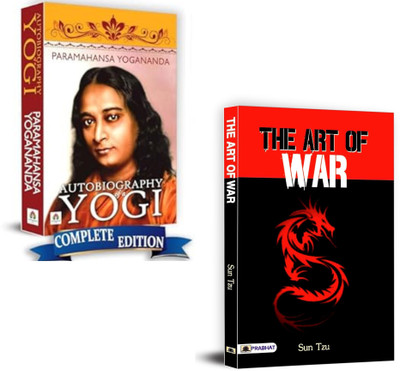The Art Of War + Autobiography Of A Yogi (Mind & Spirit Mastery: Strategy And Spiritual Awakening Collection) The Art Of War Book| Autobiography Of A Yogi| Sun Tzu Strategy| Paramahansa Yogananda Life| Spiritual Awakening Books| Strategy And Spirituality| Mind And Soul Development| Ancient Wisdom Bo
Quick Overview
Product Price Comparison
: The Art Of WarThe present book The Art of War is an ancient Chinese war treatise. It is estimated to be written in 15th century BC. It is attributed to ancient ChinaŌĆÖs war and military strategist Sun Tzu. This book is written in over thirteen chapters, each comprising of one strategy or trick of the warfare in explicit detail. Hence, this book has been rendered as one of the greatest works on the art of war and its strategy. It was placed at the head of China's Seven Military Classics upon the collection's creation in 1080 by Emperor Shenzong of Song, and has long been the most influential strategy text in East Asia. It has had an influence on Eastern and Western military thinking, business tactics, legal strategy and beyond. : Autobiography Of A YogiAutobiography of a Yogi introduces the reader to the life of Paramahansa Yogananda and his encounters with spiritual figures of both the East and West. The book begins with his childhood family life, to finding his guru, to becoming a monk and establishing his teachings of Kriya Yoga meditation. The book continues in 1920 when Yogananda accepts an invitation to speak in a religious congress in Boston, Massachusetts, USA. He then travels across America lecturing and establishing his teachings in Los Angeles, California. In 1935 he returns to India for a yearlong visit. When he returns to America, he continues to establish his teachings, including writing this book. The book is an introduction to the methods of attaining God-realization and to the spiritual thought of the East, which had only been available to a few in 1946. The author claims that the writing of the book was prophesied long ago by the nineteenth-century master Lahiri Mahasaya.

